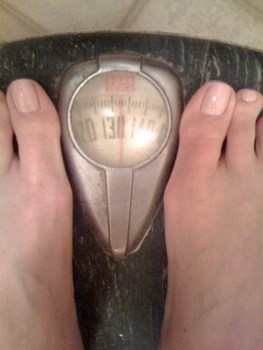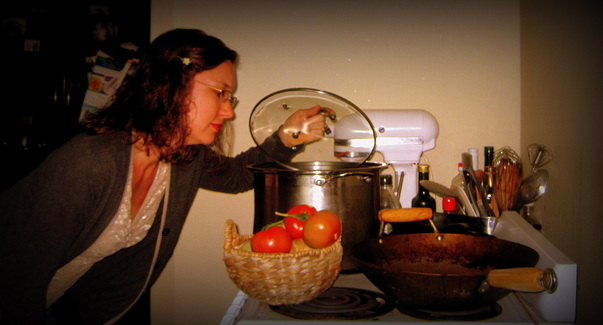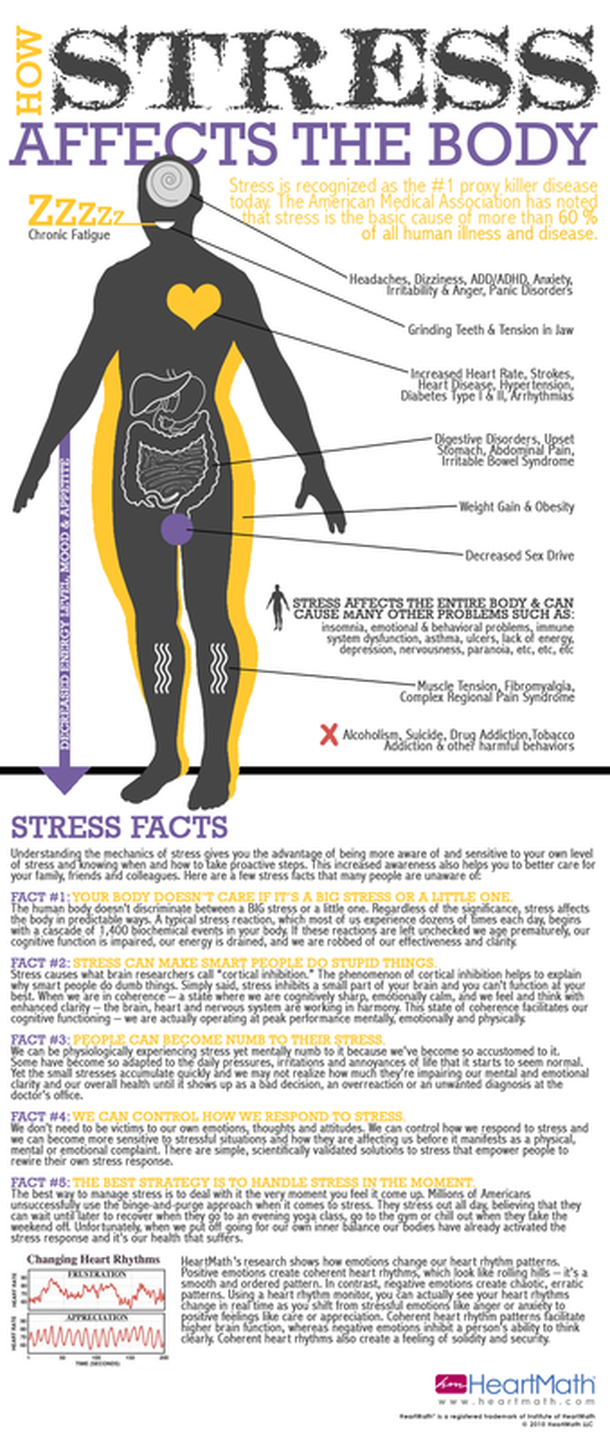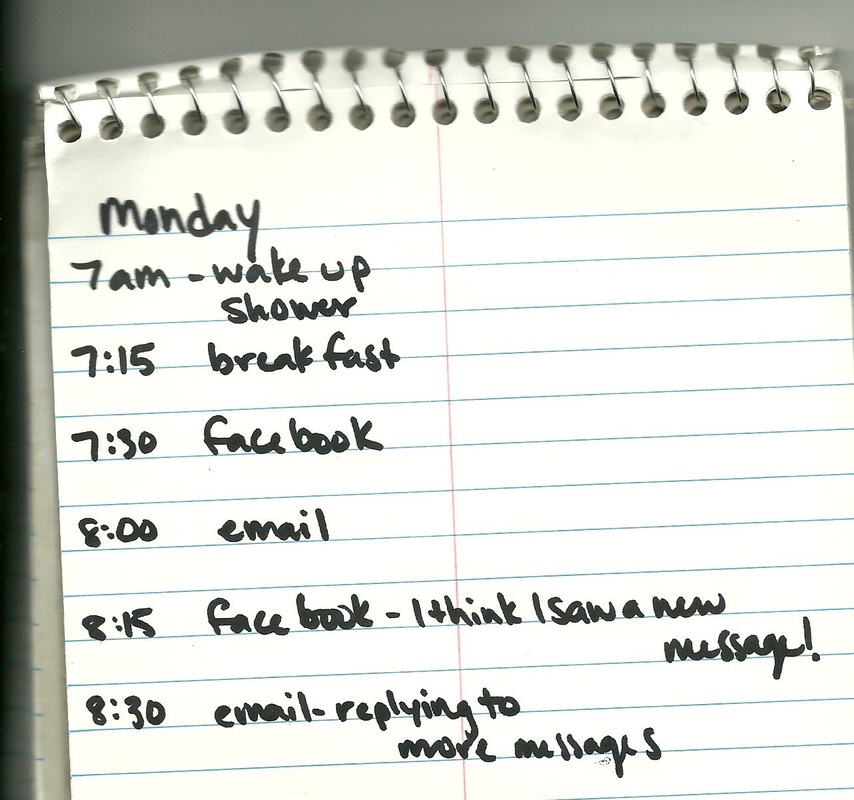|
Some say "no pain, no gain." I say: if it hurts, you're probably not doing it right. If you're exercising and it hurts, that can mean serious trouble. If you're experiencing emotional pain in you're life, that can also mean serious trouble. You may know some of these common effects of stress building up in your body and in your life:
These are good to know. They are some of the more apparent results of a stressed out life. But here are some you may not associate with stress:
Now, am I saying that just about everything is caused by stress? Nope. But living a high stress life with little outlet and ability to positively deal with stressful situations sets us up for failure. Our health is compromised, our relationships are strained and our general outlook on life is worse. Many of the above symptoms can be caused by a variety of factors, whether or not stress is present, so be sure to get a full check up and discuss any lab work that would be helpful for you and your doctor to best understand your health issues. A lot can be learned from simple blood tests and saliva tests (yep, pretty much just spitting in a test tube)- it's important to not overlook any potentially serious medical condition when working on balancing your physical and emotional health. I am here to answer any questions you have about this topic- you can comment on this article or email me directly. To your good health, More articles on stress and you:
Stress: what is it good for? From overwhelmed to overjoyed Stress vs. Well-Being: how do you measure up?
1 Comment
Recently I've been passing some good info and resources from the Institute of HeartMath.
For new-to-me readers, this is a wonderful resource for all things anti-stress. Using tools from them has literally pulled me from a stressaholic to a balanced, positive person ready to take on the world. Here's a gem to try out. The Stress and Well-Being Survey, it's free and takes just a few minutes. Like filling out online quizzes? I do. Plus, this one actually gives you much more important information than "What character would you be in Harry Potter?" ( I don't know, I confess I never really got into the series, so I'll just go with Hermione) The results give you estimates on how well you're doing in some pretty important areas of your life: Physical Vitality, Emotional Vitality, Social Connectedness, Spiritual Connectedness and Overall Well-being. I found my results interesting and revealing and I think you will, too. So what are you supposed to do with these results? Well, you could put it on your fridge, have a Spiritual Connectedness competition with your friends (joking, that's a terrible idea) or maybe this is yet another confirmation that there's something troubling you and you've just never wanted to seek help for it. Well, this is the sign you were looking for. Maybe you're feeling run down and exhausted all the time, even when you wake up (which is an awful way to start the day). Maybe the slightest things provoke you and send you into a major freak out state. Maybe the sight of a particular person's name in your inbox or on your phone shoots your heart rate sky high. This is no way to live. Find someone who will listen and help. I would love to help you out or find someone near you who can. Take care out there. It can be a stressful place, but that doesn't mean we have to be stress-cases in response. To your good health. Know what I love about HeartMath? Everything. Ok, so that's not very helpful. Let me explain. HeartMath really addresses the root of my patients' stress-related issues. I feel that this particular type of biofeedback, which uses guided intervention in heart rate variability patterning, gets to the bottom of issues which are so prevalent in our society (feeling stressed out, exhausted, nervous wrecks, overwhelmed, constant fatigue, the list goes on and on). So here's the whirl-wind intro, though you're always welcome to call for a complimentary 15 minute introductory consult... you can meet me and talk further about how I can help you achieve a better state of health. First, why would someone use HeartMath? Well, one of the most common reasons is a stress-related condition, such as anxiety, depression, insomnia, hypertension, attention disorders and chronic pain. Take a look at the many ways stress ruins your body and mind If the image above is a little blurry, here's the original
Bad, huh? Yes, in general, stress is bad. A little is ok, but most of us have waaaay more than a little stress in our lives. So how does HeartMath work? What is it doing? It's harnessing your innate heart-brain connection, and using that internal power for good (relaxation and restoration) instead of evil (panic attacks and out of control emotions). Trippy, huh? It is optimizing the communication between your nervous, cognitive hormone and immune systems to balance out any mis-signaling. Through this process you will learn to identify and remove all internal signals that, perhaps subconsciously, are working against you instead of for you. The end result? Common effects are increased happiness, more positive outlook on life, little or no stress reaction from what was before stress-inducing issues (work, relationships, finances), a full release from prior feelings of overwhelm and burnout and the ability to finally overcome a physical or hormonal issue (like those listed in the graphic above) just to name a few. This technique is simple, powerful, and transformative. Everyone should give it a try. How does this whole process work? You can learn from the decades of research and look up conditions and information important to you on the HeartMath website. They offer biofeedback devices to anyone, though working with a healthcare professional such as myself ensures proper monitoring, assistance and its optimal placement within a comprehensive wellness approach. I use HeartMath biofeedback during office visits and program check-ins for those who could benefit from its use as well as offer shorter stand-alone sessions. To best learn and implement the biofeedback techniques in your everyday life above and beyond the few times I guide you through the process. Most patients benefit from an initial round of 4-6 sessions which will be part of an all-inclusive integrative plan where all your healthcare issues are addressed and attended to. My current weight loss and stress reduction program, 'slim down & happy up,' includes HeartMath sessions during as many of the bi-monthly check-ins as you'd like. That means up to 6 HeartMath sessions are automatically included in the program, no extra cost at all! The next 'slim down & happy up' program will run 3 months, starting September 9th. Registration begins on our next session Monday, August 19th, check out the full details here. To your good health,  So back in my "Nutrition 101" days of my Naturopathic medical education, I learned the commonly taught old school nutrition idea of: "weight loss = more calories burnt than consumed" So that's it, huh? Eat less calories, burn more calories and weight loss will be a sure thing? Well, most of us know it's just not that easy. In fact, many find that they gain weight during and after dieting, even if they increase their activity level. So what's going on?! The fact of the matter is, only 1 in 6 dieters keeping the weight off (after a year). So why can't we all just follow that easy formula and lose those extra pounds?! ...because it just isn't so simple. We are a little more complex than calorie consuming and burning machines (but you probably knew that already). An article published last week in the Journal of the American Medical Association provides a little insight into some of those dieting and weight loss complexities. The publishing authors looked at overweight research participant using three different diet and weight loss programs and measured their success. The three diets were low-fat, low glycemic and low carbohydrate (high protein). Under carefully monitored in-patient hospital settings, the low glycemic dieters burned an average of 200 calories per day more than the low fat. The low carbohydrate dieters lost 300 calories more per day than the low fat dieters but saw an increase in blood levels of inflammatory markers (cortisol and CRP). So what does this all mean?! Just follow the diet where people burned the most calories while being constantly monitored in the hospital? Well, that doesn't sound like a very enjoyable diet program to me. If you're considering a weight loss-focused diet and exercise program, think about getting an expert involved to guide your path to success. If you haven't heard by now, my past 'slim down & happy up' program sessions have provided women (& men) with guided, individualized meal planning, diet guidelines and exercise recommendations. Combined with unique natural formulas that I craft specifically to each participant, this really is my all-in-one tool to address weight loss and stress reduction for long-term success. Registration for our next session opens Monday, August 19th, full details here. Join us for 3 months, and just see what a profound impact you and I can have on your health and quality of life! There are so, so many things that I despise about all the popular nationally-known diets. If it involves meal replacement shakes, points or counting anything, I probably hate it.
From ‘slim down & happy up”: A lot of well-known weight loss programs have good intentions but poor execution. A calorie restricted diet is a common strategy. Calories in, calories out, right? We just get you to eat less and work out more, and the pounds will fly right off, right? Nope. It’s not that simple. So let’s highlight one very popular weight loss strategy: portion control. Blech. Even saying “portion control” makes me uncontrollably contort my face like these kiddos (except the yogurt girl; I’m pretty sure I’ve never looked that cute). “But, Dr. Angela, shouldn’t you be all for portion control since you help women lose weight?” You would think, but no, no I’m not. Because food selectivity is much more important than portion control. While helping women lose weight through slim down & happy up, we talk so very much about our food choices, and leave grams, calories and servings to those other guys. I actually find that both slender and overweight women alike tend to under-eat- I more commonly advise women to eat more food rather than to scale it back. We should be more mindful of what you’re eating, and less about how much. Women in ‘slim down & happy up’ eat until they are full, breakfast, lunch and dinner. And how is that? How am I assisting in weight loss without counting calories, points or replacing meals with shakes? Well, that takes a while to explain. Five weeks, to be exact. Never fear, registration is now open for the next session of ‘slim down & happy up.’ We’re starting June 27th, so you’ll have to get on board before then! Oh, and to get a private discount code for this current session, sign up above to get on my contact list. Here’s to eating to your fill, Yep, I’m anti-grazing. “I need to eat every 2 hours, or I just faint, get grouchy, become homicidal, start eating dirt, etc.” I’ve heard it countless times. I used to say it myself. But where did we ever get the idea that that was normal? Let alone healthy? Feeling like you will pass out or go crazy if you don’t eat every two hours is not healthy. I don’t let that slide. Why? Why do I care so much because you eat kale and grass-fed lamb and organic walnuts every two hours? Because I care about you and your hormones. Yes, it’s back to hormones again. This time, those responsible for the endless grazing cycle loop are insulin and cortisol (and also a dozen other digestive hormones and other neurochemicals). A major part of the grazing addiction is blood sugar instability. Blood sugar roller coasters, lead to off-the-wall insulin responses and set you up to need to graze constantly. A stable, healthier blood sugar response, on the other hand, allows for the best use of calories, including fat burning. That means grazing (and their wacky blood sugar patterns) can actually lead to weight gain- the very thing that grazers often are trying to avoid! As I explain it in ‘slim down & happy up’: insulin excess + insulin spikes = belly fat Guess what else happens when blood sugar responses go from crazy-roller-coaster to nice-and-smooth? Stress goes down because cortisol (the stress hormone) will decline naturally. Wanna learn how to break the grazing cycle and reduce stress? An added bonus just might be losing a little belly fat in the process. Registration is now open for ‘slim down & happy up,’ my way to target weight loss through stress reduction (and get those pesky hormones under control for once!)- so sign up now while you still have time. If you aren’t already on my contact list, sign up and receive a private discount code for this current session. We begin in a few weeks- don’t get left behind! Here’s to helping you de-stress,  cook smarter, stress less ...you gotta eat, so why not upgrade your kitchen time? do you... ...struggle with trying to cook homemade food without spending all your time in the kitchen? ...stare into your fridge for long minutes, with only mustard and bare shelves staring back at you? ...want to eat healthier lunches at work, but never cook ahead of time, so you end up eating out more often than you'd like to admit? (warning sign #1: the fast food clerk knows your name and order) if so, then join Dr. Angela on this free 3 day workshop and find out how to... ...structure your kitchen time for minimal prep and maximal meal production ...eat better, cook smarter and stress less over your food choices ...learn how to keep your fridge stocked with healthy meals and snacks ...and get a few bonus recipes to help you get started, now! join me from the comfort of your pjs Register for the workshop now (it takes 2 seconds), then sit back and follow along as the entire course is sent to your inbox through my short course on upping your kitchen game. Each day will bring a new e-booklet to your inbox, so you can read and follow along at any time. so what's the cost? For all this love, time, and organization, I'm bring you Let's Get Cooking for free ...but only if you sign up now through June 9th alright, so when do we start? Let's Get Cooking runs Monday June 10th to Wednesday June 12th. Sign up today to save your spot. If you have a friend who also needs some kitchen intervention, pass this link along and Get Cooking together! What do you never seem to have enough of? Time. Money. Matching socks. Ok, well I can only help so much; those socks are up to you. But how about your time? Yeah, you've heard of time management, but doesn't it seem like you're at the receiving end, being managed by some other force? A force which apparently hates the thought of you having time to yourself, of ever feeling relaxed. So let me shed a little light on this conundrum. Let's take back the reigns to your calendar, one step at a time. First, it's time to face the hard facts. Let's just go ahead and rip off this band-aid. Step One: time for a Time Audit Your homework, should you choose to accept it is to track your time. All your time. All your activities. Try doing this consistently for a week, but even a few days will be quite revealing. (here's a few apps for fool-proof, forget-me-not time tracking, here, here and here) Attempt to track all your waking hours, noting everything that took more than a few minutes of your time. What do you see? Any patterns? Anything surprising? Getting a few days or more under your belt will help you get the best picture of how you spend your time. Like money, time can be spent, invested, wasted or saved. Are there areas where you could be spending your time a little more wisely? Step two: craft your own inner time snob After you have diligently tracked for a week or so, let the next week be all about time analyzing. Scrutinize your time spent in every area of your life. It's all about values and priorities. Here are some areas where I help my patients find more time: -- time for self care (exercise, sleep, hobbies, play) -- time for cooking healthy meals -- time for rest, restoration, nurturing and downtime when necessary And where are we going to find all that time? It doesn't just grow on trees, ya know. Well, let's run through an example. Say you can't find the time to spend an hour cooking for yourself on the weekends, but you want to prepare a few batches of food for quick-to-reheat workweek lunches and dinners. (in slim down & happy up, I share with participants my exact steps to minimize kitchen time for maximum meal impact). Alright... where are we going to find an hour? How about cutting email time from six (or is it twelve?) times a day to three? Or limiting facebook time to a twice a day indulgence (or better yet, just dump that app from your phone and remove the impulse entirely). The success of time re-organization comes from you. Your input and your investment in its success. If you take a keen eye to how (and where) you use your time, you'll be surprised where all your free time is hiding out. Step Three: staying on top of it all What's a sure-fire plan for failure? Lack of planning, and being stressed out. What can help both of those? Having a game plan, of course. Have a deadline, project or other event looming on your calendar? Then it's time to bring your best inner time snob and stay riding that to-do list wave (it's better than drowning in responsibilities, after all). As someone who pretty much always has a full schedule, I definitely have to practice what I preach here. Since the last thing I want to do is add a huge list of tasks to an already bursting-at-the-seams schedule, I go into much more specific detail about my approach and strategy to do it all while keeping sane (and stress-free, in fact!) in slim down & happy up. The fall session is just about open for registration, join us on this next round and find a healthier lifestyle for yourself and your family. I'd love to hear what kinds of creative time planning you use, so please leave a comment below. To your good health (which includes plenty of rest and play time!), Haven't heard? Join me for slim down & happy up, a unique stress-reducing and healthy weight-achieving program crafted especially for you, the busy lady. More great stuff by me: Just who do I think I am, anyways? Bulletproof balance (make room for this in your schedule and you won't be sorry!) photo credit: BeverlyLR
 I love HeartMath. It's the only computer program that I can think of that I'd call a life saver. Others are useful, helpful or necessary for business operations. But not live savers. HeartMath is. It's for real. Myself and all my formerly-stressed-out patients who have experienced the biofeedback training using the HeartMath system can attest to this. At first, there was the emWave as a desktop or handheld version. I use the desktop version with myself and my patients (I do practice what I preach!). I usually have one or two handheld devices on hand for those patients who are most eager and committed to relieving their stress that they enthusiastically continue biofeedback training in their own time away from my office. Then a month ago I learned about the Inner Balance Sensor: the next generation version for the iPhone, iPad and iTouch. Check out the video all about it, and get brushed up on this innovative technology in under 3 minutes. It turns iPhones into biofeedback devices. That is seriously cool. Anyone can now access and use this technology in their daily lives. I've long been looking for a way to bring my in-office biofeedback sessions on the road. It's difficult to explain in words a concept that's instantly understood by just watching and experiencing biofeedback in action. Now when I'm out and about at meetings, presentations and other public events, I'll be able to fire up my iPad and have a scaled-down version ready to demonstrate on demand. I recently saw that Dave Asprey, the Bulletproof guy, recently endorsed the Inner Balance Sensor as well as provided a very comprehensive overview of how it works. He's known for dismantling the entire way that we eat, and reconstructing his Bulletproof diet based entirely on research findings for optimal human performance and activity. Check out his diet guidelines, they're pretty spot-on. As Dave Asprey's writings can be trusted to be firmly rooted in the scientific research, his articles are well worth a read: How to Biohack Your Courage, How HeartMath Training Helps You Live Longer, and Six Ways To Hack Your Nervous System. His theme is "biohacking" your body's physiology through the use of science, if you can't tell.
Well, that's my exciting news today, though there's much more in the works. But that will be exciting news for another day. To your good health, Absolutely nothing. Ok, so that's not entirely true. But 99.9% of reactions to stress nowadays are harmful and unnecessary. Here's a whirlwind tour on what stress is doing to you and your body, why it sucks, and what you can do about it to have a happier, more kick ass life. Most of us have heard that the physiologic (body) response to stress has evolved to run away from woolly mammoths or saber tooth tigers or something along those lines. Well, ok, great, but we were also club-swinging unibrow-sporting troglodytes (word of the day for ya). Things have changed. So why on earth would morning traffic and work deadlines cause the same effects in your body as a near-death experience as the hands (or claws?) of a neolithic lion? Because, for the most part, deep deep down in your genes and cells, not much has changed. You're still living, breathing and metabolizing like its 1999. B.C that is. And what is stress and who defines it anyways? What cranks one person's stress-o-meter up to 11 (public speaking anyone?), is exciting, challenging and enjoyable to another. Well, the million dollar answer is: that person, thing, event or activity that is "stressful" is only stressful because you're responding stressfully to it. Ok, before I go too esoteric and off into "what is is" land, let me break it down another way: stress as a word was not created to describe a human physiologic response. It came from civil engineering, and only afterwards did biology researchers take the idea and apply it to the human body. Stress is a force from the outside that is exerting its effects in you (or a bridge, but why split hairs). Or to quote the never-wrong wikipedia, "stress is a measure of the internal forces acting within a deformable body." Sexy definition, right? So something is trying to deform your body (boss breathing down your neck, kids going nuts, no time to yourself) and stress is the amount those things are affecting you, internally. But. But. The real kicker of all this is you have a choice in the matter. You can choose how all those external forces affect your internal forces and deform your body. (ok, I'll stop with the engineering talk) There are many ways you can respond physiologically (and emotionally) to potentially stress-inducing events and interactions. How do you respond? Crack like an eggshell? Crumble like saltine?
How do you want to respond? Bounce back from any hardship like a superball? Nonchalantly and gracefully move from one project to the next like a slinky? You may have minimal influence over commuter traffic, paying the bills and having a ever-expanding to do list with never enough time-- but what you do have maximal influence over is your response. This is more than a matter of "just think good thoughts" or "quit your job and move to Fiji" (though if you're looking to take a concierge doctor to Fiji with you, let me know). I work with people to build up their internal reserves so that they can react to life more like a slinky and less like an eggshell. Getting and maintaining that attribute is a process (unless you do just move to Fiji)- but one that when working together, I have always seen stress diminish, anxiety dissolve and positivity and resilience grow in their place. And from that standpoint, you can take on the tigers and bosses without losing your cool. To your good health, |
Archives
June 2024
Categories
All
|
about the doc |
patient infocontact |
|
Privacy Policy
© Copyright 2011-2024, Dr. Angela Cortal ND LLC website content is for educational purposes only and is no substitute for medical advice (see the Terms of Use Agreement for this site), you must establish a doctor-patient relationship to receive that! |













